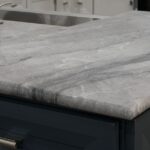Hold on – aren’t all quartzite countertops white? Well, not necessarily. Although there are several color variations in nature – let alone the artificial ones on the market nowadays – white quartzite slabs are the most reliable option when it comes to design versatility, easy maintenance, and price accessibility.
In this article, find out the very best of white quartzite countertops – including their selling points, potential drawbacks to look out for, and suggested styles from a professional perspective.
You may also like: A Complete Guide to Marble Countertops
What are white quartzite countertops?
White quartzite countertops are made from a metamorphic rock called quartzite, which is used for many interior design applications across the world. Quartzite is formed when sandstone undergoes a process of heat and pressure deep within the Earth’s crust, causing it to recrystallize and become much harder and more durable than its parent rock, sandstone.
While primarily composed of quartz – a mineral made up of silicon and oxygen atoms (SiO2) – the transformation from sandstone to quartzite occurs when the individual quartz grains in the sandstone recrystallize and fuse. This process creates a very hard, durable, and porous rock with a granular texture.
Do you want to know the difference between quartzite and quartz? Read until the end!
By any means, white quartzite countertops are the perfect last touch for many homeowners who look for natural stones to embellish their place. Oftentimes used for kitchens and bathrooms, white quartzite conveys the elegance, shine, and luxury that we want to be around every day.

Benefits of white quartzite countertops
White may seem like a plain option for perfectionists, but the truth is that white quartzite – just like marble, which resembles quartzite depending on the composition – is a classic for a reason.
Actually, several of them. Here are some of the key advantages that make these slabs a popular choice for designers:
- White quartzite countertops have an elegant and timeless appearance, often featuring subtle veining and patterns that mimic the look of marble and other natural stones;
- It’s a very hard and durable natural stone – being resistant to scratches, heat, and other forms of wear and tear – and this durability ensures that your white quartzite countertops will last for many years with proper care;
- While quartzite is not completely impervious to staining, it is less porous than some other natural stones, meaning that proper sealing and maintenance are an accessible solution to remove common kitchen spills like wine, coffee, and oils;
- Likewise, as much as quartzite is highly heat-resistant, you can place hot pots and pans directly on its surface without worrying about major damage (this is a valuable feature of a kitchen countertop);
- White quartzite countertops present relatively low maintenance and require periodic sealing to help maintain their stain resistance – but this is a straightforward process and not as frequent as with some other natural stones, like marble;
- White quartzite’s neutral color complements a wide range of kitchen and bathroom designs, so it can be paired with various cabinet colors and backsplash options that match most personal styles.
- Each slab of white quartzite is unique, offering a one-of-a-kind appearance for your countertops, unlike any piece of product in existence;
- Due to being subtle and easily likable, white quartzite countertops can enhance the resale value of your home;
- White surfaces can help brighten a space by reflecting light, so your kitchen or bathroom may appear larger and more inviting.
The difference between quartzite and quartz
This is a common question faced by many in their search for the ideal natural stone. After all, sometimes they all look the same – so when their names are also similar, their individualities might get mixed up, affecting your choice.
Well, the main difference here is simple: quartzite is natural, whereas quartz is a manmade product that comes from quartzite. Quartz countertops are engineered stone surfaces made primarily of quartz crystals (typically around 90-95%) bound together with resins and pigments. In other words, they are manufactured in a controlled environment, while quartzite is collected from natural quarries.
The primary thing to consider, then, lies in their composition, formation, and versatility. Quartz is non-porous – meaning it doesn’t have to be sealed like quartzite – and can be found in a vast array of colors on the market. That said, each has its own set of advantages and considerations, so the choice between them often depends on personal preferences, budget, and specific application requirements.
The best of white quartzite countertops
Oh, one more tip: you will find out that quartzite is a great option for those looking for the durability of granite. All quartzite varieties are incredibly durable and low-maintenance – under proper care, they can’t be scratched by knives, damaged by heat, or stained easily.
Below, we’ve listed six high-rewarded suggestions to inspire your next project:
- Super White Quartzite
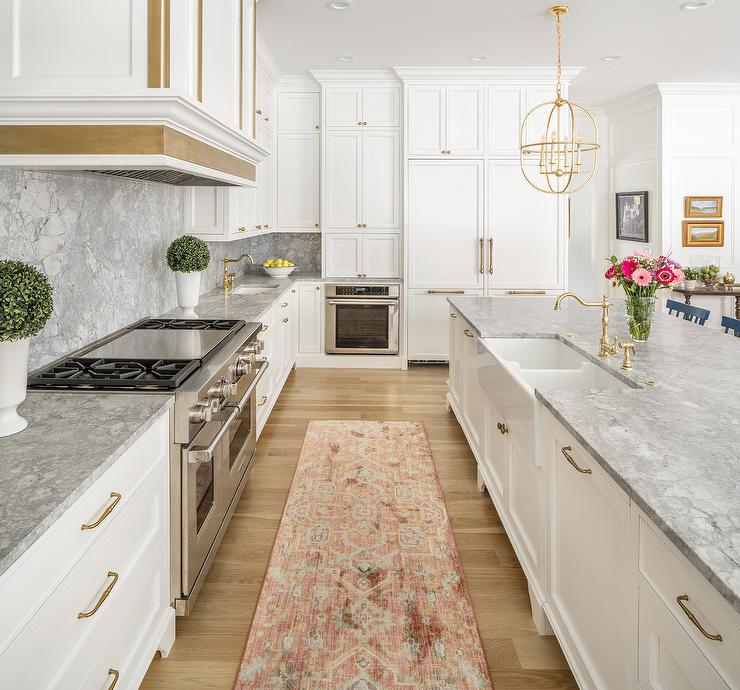
Known for its elegant white and gray background with subtle veining that resembles marble. It’s a favorite choice for those seeking the classic look of marble with the durability of quartzite.
- Calacatta Macaubas
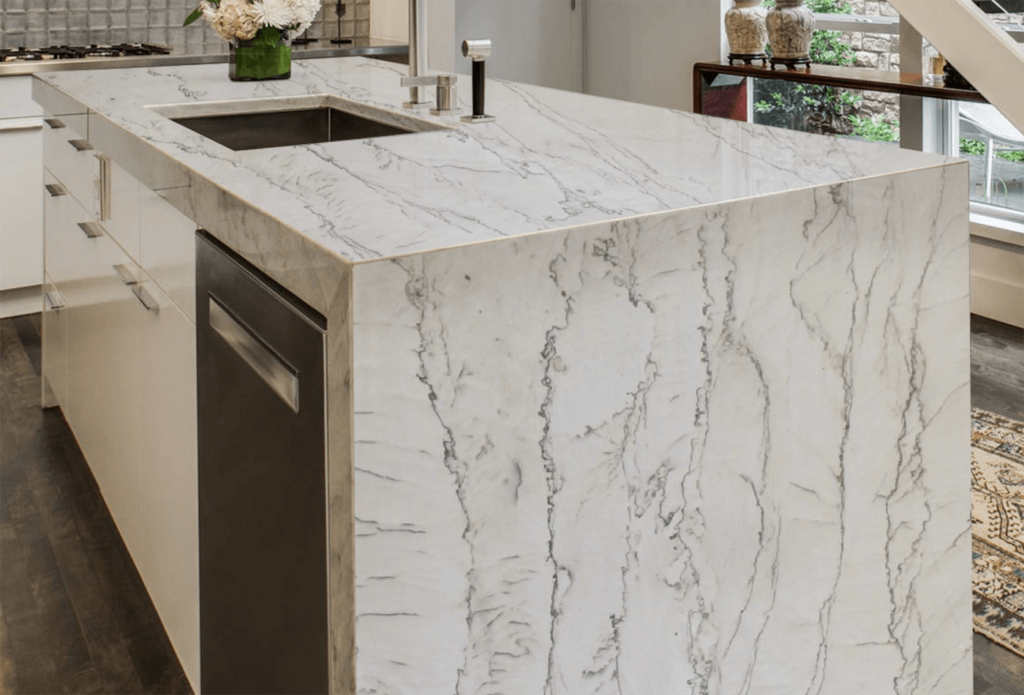
This white quartzite features bold, dramatic veining in shades of gray and gold. It provides a luxurious and sophisticated look, making it a top choice for high-end applications.
- Arabescato Quartzite

Arabescato quartzite combines white and gray tones with intricate, flowing veining. It’s a versatile choice that works well in both traditional and contemporary settings.
- Fantasy Macaubas

Fantasy Macaubas quartzite showcases a captivating blend of white, gray, and gold tones with unique, sweeping veining patterns. It can add a touch of drama to your space.
- Mont Blanc Quartzite
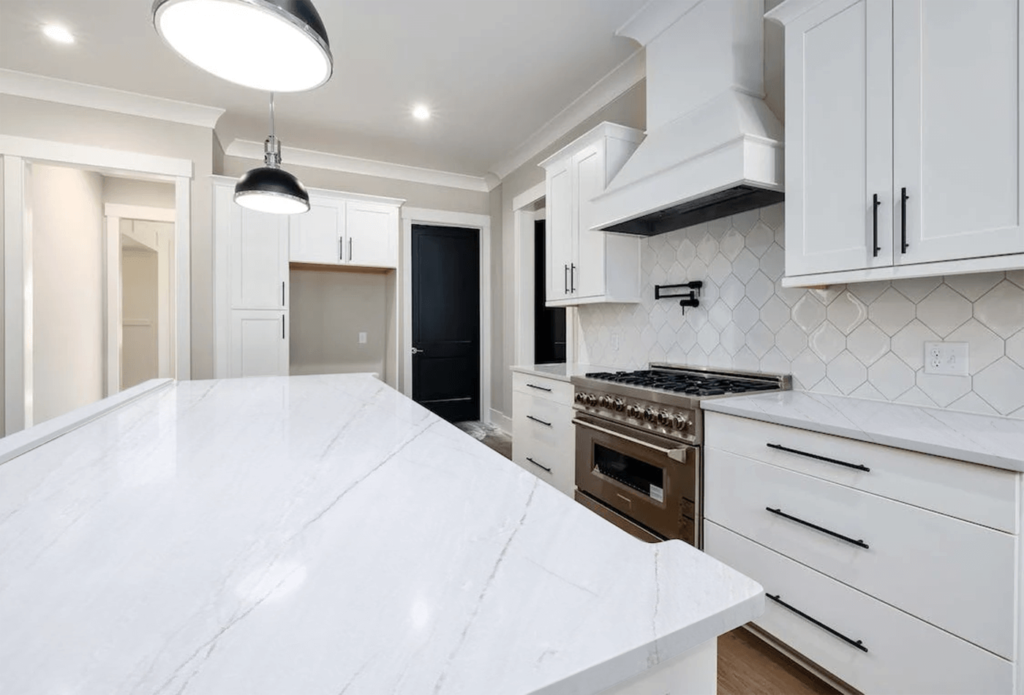
Mont Blanc Quartzite is known for its predominantly white background with subtle gray veining. It offers a clean and elegant appearance that complements various design styles.
- Luce Di Luna Quartzite
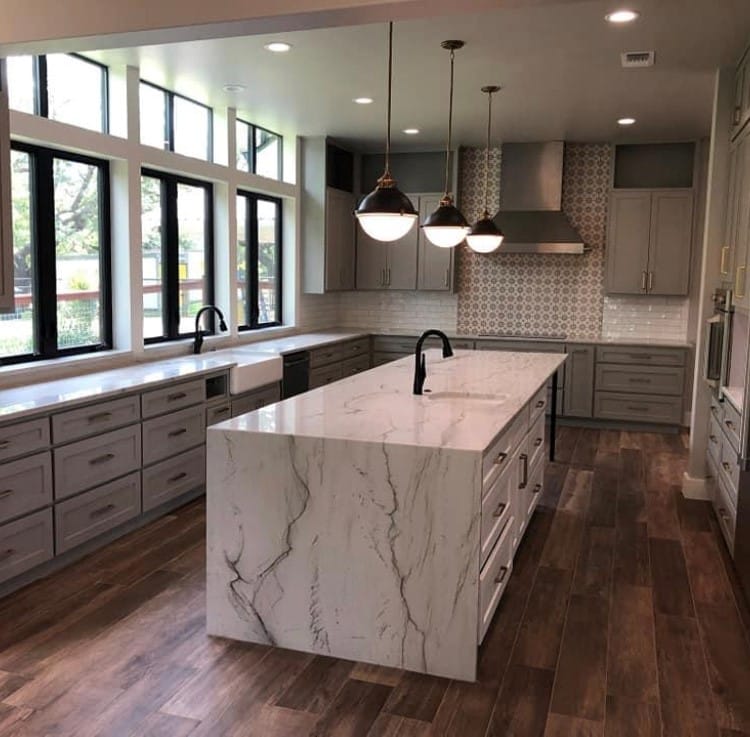
Finally, Luce Di Luna Quartzite is prized for its soft white and gray hues, occasionally accented with subtle green or blue undertones – imparting a serene and sophisticated ambiance anywhere.
Find high-end quartzite slabs at Eagle Stones
Based in Sarasota, Florida, we offer the best experts in town for any natural-stone-related business, including supply, installation, and maintenance. If you want to check out our full catalog of quartzite stones, don’t hesitate to contact us today.
We’ll go to your house and even give you a free estimate! What are you waiting for?

